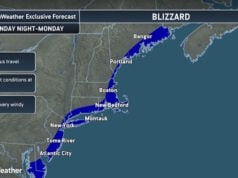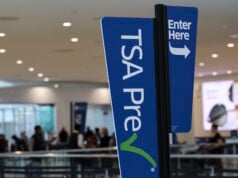Yes, Lucas said. And then the former corporate attorney laid out how this system has enabled him to become one of the most successful and influential insurance executives in Florida.
“You get to cherry-pick the policies,” Lucas said, describing how he has been able to select hundreds of thousands of favorable policies — and the revenue that comes with them — from Florida’s state-run Citizens Property Insurance Corp. “You are underwriting and cherry-picking the best policies,” he added, “leaving kind of the worst ones there.”
That opportunity is what drew Lucas to the industry in 2012 when he created Heritage Insurance, and what’s behind Slide. He’s far from alone. Dozens of start-ups have flocked to the state over the years lured by the chance to grow big.
But while this system has been working for some top executives like Lucas, it has been crippling many residents and disaster victims, who are paying some of the highest prices in the nation for insurance while experiencing some of the worst claims handling and processing times, according to an investigation by The Washington Post. For many victims of last year’s catastrophic Hurricane Ian, the dysfunction has crushed their livelihoods, with scores still living in unfinished homes.
Florida’s insurance market is one of the worst in the nation for homeowners, according to data from the National Association of Insurance Commissioners (NAIC) obtained by The Post. Overall, in 2022, Florida had the highest percentage of unpaid claims of any state and the most claims that were never processed, and it failed to renew the most policies.
Lucas created Slide in 2021 in response to Florida’s emerging insurance crisis, which began even before Ian. And already, insurance officials have awarded him the opportunity to take over far more policies than any other company, data shows — either directly from Citizens or from other insurers that have gone under or pulled out of the state. A key reason he’s cited for the success of Slide is the state’s recent spate of pro-insurer legislation — changes that he and his lobbyists have been pushing for years.
Lucas and allies say that by raising a significant amount of money, they are able to bring more confidence to Florida’s insurance market. He says it’s especially critical because property insurers in Florida rely on reinsurers — usually global companies — that reimburse them when big disasters hit, and those reinsurers have been raising rates dramatically because of climate change.
Florida officials defend the takeout practice, saying it’s necessary to sustain a private market.
“We wanted them to pick what would be attractive to them so they would keep the policies,” said Michael Peltier, a Citizens spokesman. “It was designed to cherry-pick.”
But critics argue that the system is not working, enriching executives and allowing them to raise premiums dramatically without creating long-term stability. When an insurer fails, as 10 have since 2019, any open claims are sent to another state agency, the Florida Insurance Guaranty Association (FIGA), which haggles over paying for damage, while homeowners often end up back at Citizens for future coverage.
Citizens, meanwhile, can’t afford to grow much more. The latest data shows it has 1.26 million policies, slightly off its peak but more than double what it had three years ago. In March, Gov. Ron DeSantis (R) turned heads when he said that “most people know Citizens has not been solvent. If you did have a major hurricane hit with a lot of Citizens property holders, it would not have a lot to pay out.” And in a letter to Florida officials in November, Senate Budget Committee Chairman Sheldon Whitehouse (D-R.I.) requested documents and warned that “if Citizens were unable to cover its losses, it is entirely possible that state leaders might ask the federal government for a bailout.”
Citizens points out that it cannot become insolvent because it would levy an assessment on all Florida policyholders if it needed to raise funds. And Samantha Bequer, communications director for the Office of Insurance Regulation, which oversees the takeout program, said despite the crisis, the state’s insurance market is getting healthier. “Private companies are not permitted to take on more risk than OIR allows and the review process is extensive,” she said.
Disclaimer
Artificial Intelligence Disclosure & Legal Disclaimer
AI Content Policy.
To provide our readers with timely and comprehensive coverage, South Florida Reporter uses artificial intelligence (AI) to assist in producing certain articles and visual content.
Articles: AI may be used to assist in research, structural drafting, or data analysis. All AI-assisted text is reviewed and edited by our team to ensure accuracy and adherence to our editorial standards.
Images: Any imagery generated or significantly altered by AI is clearly marked with a disclaimer or watermark to distinguish it from traditional photography or editorial illustrations.
General Disclaimer
The information contained in South Florida Reporter is for general information purposes only.
South Florida Reporter assumes no responsibility for errors or omissions in the contents of the Service. In no event shall South Florida Reporter be liable for any special, direct, indirect, consequential, or incidental damages or any damages whatsoever, whether in an action of contract, negligence or other tort, arising out of or in connection with the use of the Service or the contents of the Service.
The Company reserves the right to make additions, deletions, or modifications to the contents of the Service at any time without prior notice. The Company does not warrant that the Service is free of viruses or other harmful components.












